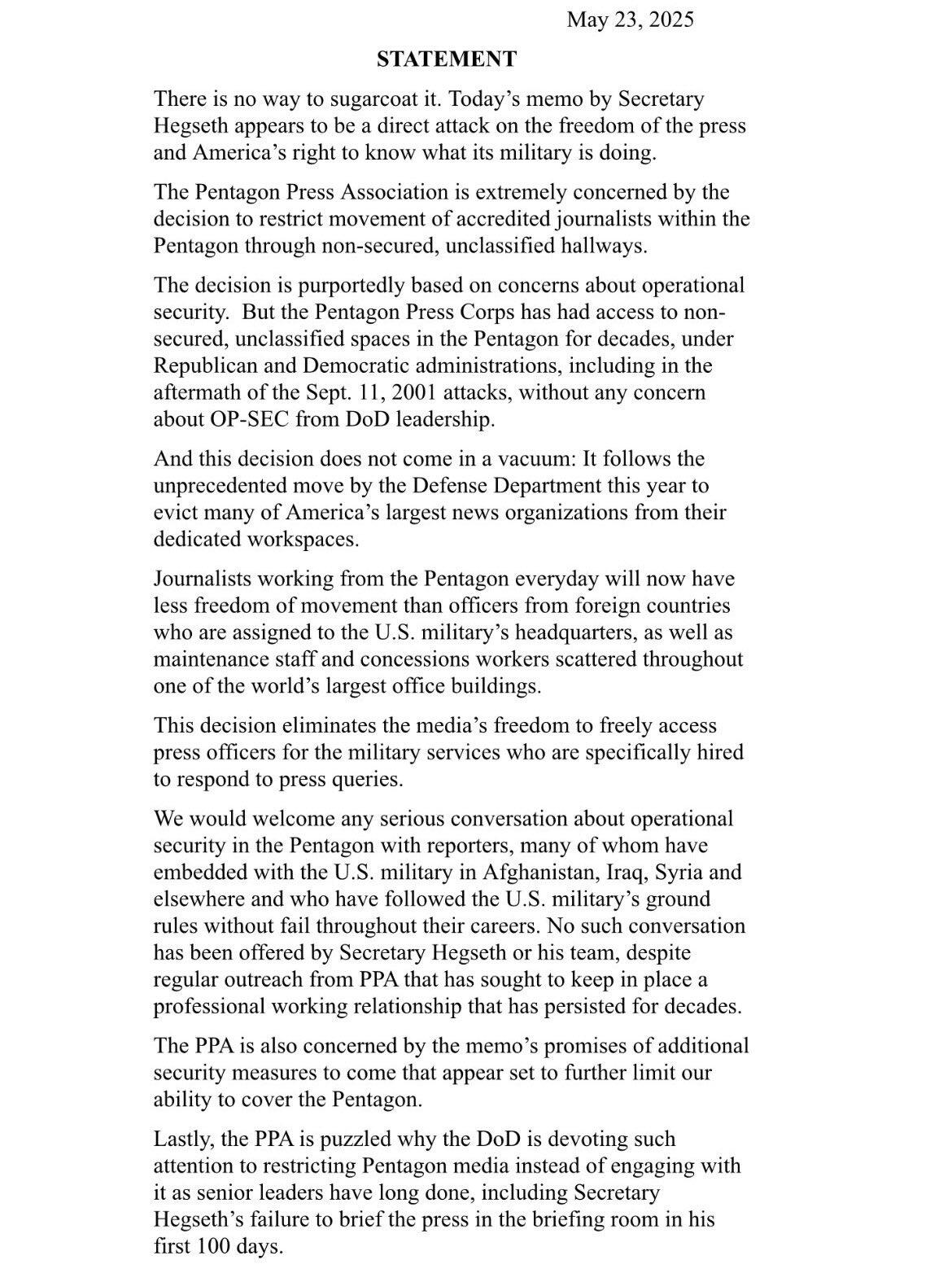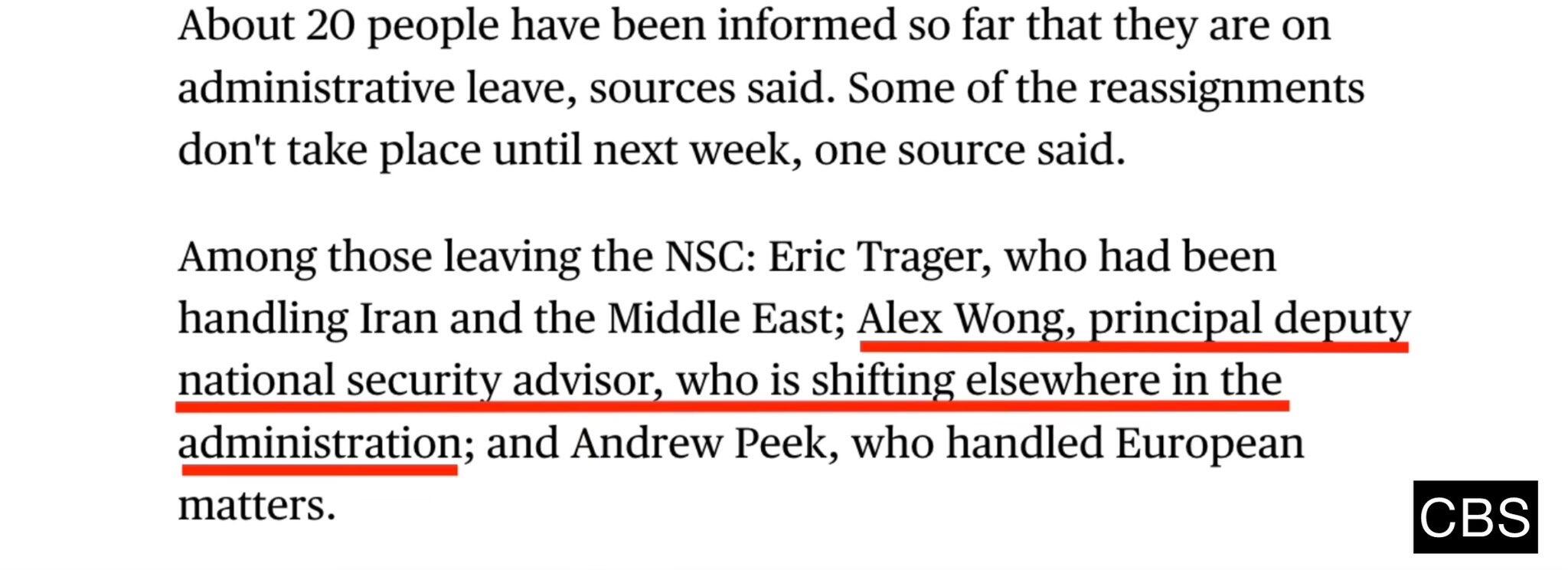
The Pentagon Press Association has issued a sharply critical statement in response to the new restrictions on press access announced today by Secretary of Defense Pete Hegseth:
“There is no way to sugarcoat this—Secretary Hegseth’s memo appears to be a direct assault on press freedom and the public’s right to know about the actions of its military.
The Pentagon Press Association is deeply concerned by the decision to curtail the movement of accredited journalists within non-secured, unclassified areas of the Pentagon. For decades, under both Republican and Democratic administrations—even in the wake of the September 11 attacks—the press has maintained this access without raising operational security concerns from military leadership.
This decision does not exist in isolation. It follows the unprecedented eviction of many major U.S. news organizations from their dedicated Pentagon workspaces earlier this year. As a result, journalists working daily from the Pentagon will now face more restrictions on their movement than foreign military officers stationed there, as well as maintenance staff and concessions workers who move freely throughout the building.
The new policy also severely hampers journalists’ ability to access press officers from the military services—professionals specifically designated to respond to media inquiries.
We would welcome a serious, good-faith conversation about operational security with Pentagon reporters—many of whom have embedded with U.S. forces in conflict zones such as Afghanistan, Iraq, and Syria, consistently adhering to military ground rules. Yet no such dialogue has been offered by Secretary Hegseth or his team, despite repeated efforts by the PPA to maintain the professional working relationship that has existed for decades.
The PPA is further alarmed by the memo’s mention of additional security measures under consideration, which threaten to further erode press access.
Finally, the PPA is perplexed by the Pentagon’s focus on restricting the media rather than constructively engaging with it—particularly given Secretary Hegseth’s notable absence from the Pentagon briefing room during his first 100 days in office.”

